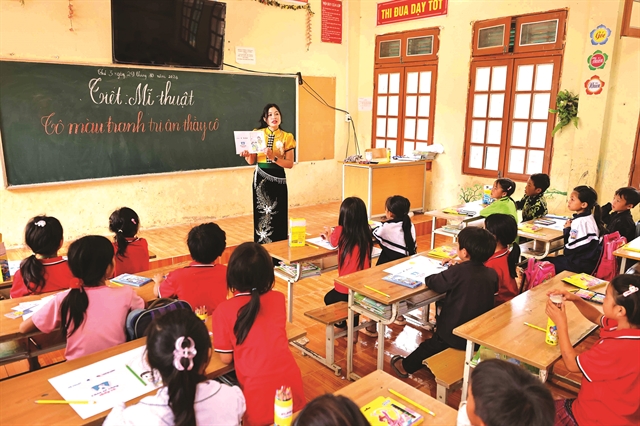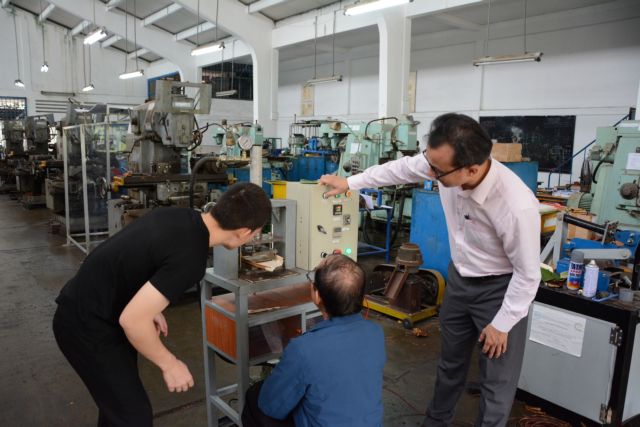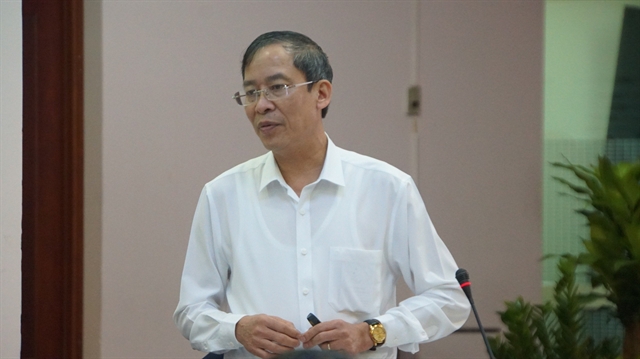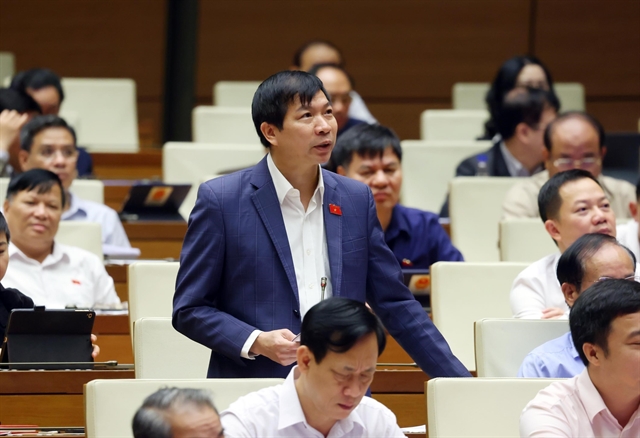 Society
Society

 |
| Lecturers and students at University of Technology and Education (under the University of Đà Nẵng) working on a research project. Experts said that extending working time for highly qualified workers can make a significant impact in specialised fields. — VNA/VNS Photo Văn Dũng |
HÀ NỘI — As part of the Teachers Law, the Ministry of Education and Training (MoET) has proposed extending the working age for high-level educators by five years or more.
Educators holding the titles of professors, associate professors and PhD can extend their working time at their institutions beyond the retirement age for teaching and scientific research purposes.
The extension is no more than five years for PhD holders, seven years for associate professors and 10 years for professors.
During this period, they will only carry out their professional duties as educators and not hold management positions. When they wish to retire or the institution no longer requires their services, they will receive retirement benefits according to the law.
Speaking to Voice of Vietnam (VOV), Dr Vũ Minh Đức, director of the Department of Teachers and Education Managers (under the MoET) which leads the drafting committee of the Teachers Law, said that this extension was detailed in Decree No 141/2013/NĐ-CP issued in October 2013.
However, Decree No 50/2022/NĐ-CP, issued in August 2022, stated that all educators, whether holding professor, associate professor or PhD titles, can only extend their working time after the retirement age by no more than five years.
This regulation has resulted in considerable concern among educators and universities regarding the possible shortage of highly qualified teaching staff and their contributions to the next generation of teachers, said Đức.
 |
| Dr Vũ Minh Đức, director of the Department of Teachers and Education Managers (under the Ministry of Education and Training). — VNA/VNS Photo Thu Hoài |
In 2023, the 13th Party Central Committee issued Resolution 45-NQ/TW, which says research should be conducted to determine reasonable retirement ages for highly qualified intellectuals.
The extension periods in the Teachers Law are therefore based on these official documents and suggestions from education practitioners.
The extended working duration must also be based on the needs of educational institutions, educators and their health conditions, Đức noted.
He added that this provision in the law is an alignment with the Party’s policy direction towards the intellectual workforce and their capability to develop high-quality human resources for the country.
It also aligns with the actual needs and aspirations of highly qualified intellects, as well as educational institutions in utilising their expertise and capabilities in training, scientific research, technology transfer and response to the requirements of the labour market.
National Assembly (NA) deputy Trần Văn Thức, a member of the NA Committee on Culture and Education, said that this extension period is necessary as highly qualified educators are the nation’s elite and encouraged to continue their contributions.
He noted that the extension lengths are determined based on mutual agreements between educational institutions and educators, which allows for flexibility for both sides.
 |
| National Assembly deputy Trần Văn Thức from Thanh Hóa Province. — VNA/VNS Photo Phạm Kiên |
“From my observation, a majority of professors, associate professors and PhD holders want to continue their contributions,” said Thức, adding that this regulation also aligns with how Việt Nam increased the retirement age for both male and female workers.
He believed that if approved, this regulation would have a major impact, especially in specialised fields and scopes of work that require a high level of expertise.
The Teachers Law has nine chapters and 71 articles, detailing general provisions; the professional duties and rights of educators; titles, standards and certificates; and implementation provisions.
The document will be applicable to teaching staff at both public and non-public educational institutions, marking the first time that the legal status of teachers in non-public schools is established as educators and not employees under labour contracts.
The law was tabled for discussion at the recent eighth session of the 15th-tenure NA, and is currently under revision before being submitted to the next NA session scheduled for May 2025. — VNS




